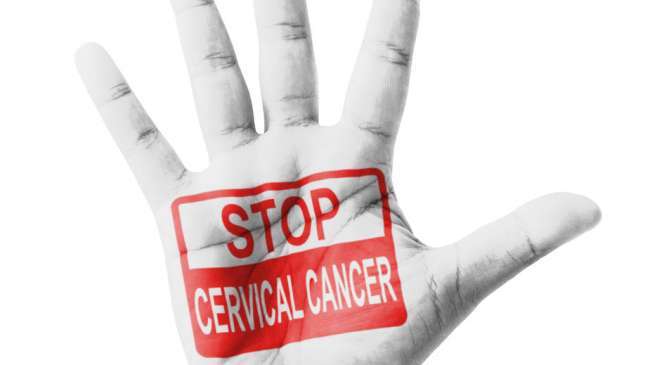Contents:
- Medical Video: Preventing Cervical Cancer
- What should be done to prevent cervical cancer
- The importance of undergoing a cervical cancer test
Medical Video: Preventing Cervical Cancer
According to a report from The American Cancer Society, in 2016, there were an estimated 12,990 new cases of invasive cervical cancer and consequently, 4,120 women would die of cervical cancer. But can cervical cancer be prevented? Here are some tips on how to prevent cervical cancer.
What should be done to prevent cervical cancer
The American Cancer Society encourages women to follow this guide to help find early cervical cancer. Following this guide can also find pre-cancer, which can be treated to destroy cervical cancer so it doesn't form.
- All women must start cervical cancer screening at the age of 21 years. Women aged 21 to 29 years must undergo a Pap test every 3 years. HPV tests should not be used for testing in this age group (HPV tests can be used as part of follow-up for abnormal Pap tests).
- From the age of 30 years, a good way to screen is a Pap test that is associated with HPV testing every five years. This is called co-testing and must be done until the age of 65 years.
- Another reasonable choice for women aged 30 to 65 years is to screen every 3 years with a Pap test.
- Women who are at high risk of cervical cancer because of a depressed immune system (for example due to HIV infection, organ transplantation, or long-term use of steroids) or because of exposure to in utero DES may need to be screened more often. They must follow the doctor's advice.
- Women over the age of 65 who have undergone frequent tests in the past 10 years should stop doing cervical cancer screening for as long as serious pre-cancer (such as CIN2 or CIN3, CIN stands for cervical intraepithelial neoplasia) has not been found in them for the past 20 years . Women with a history of CIN2 or CIN3 should undergo screening for at least 20 years after abnormalities have been found.
- Women who have had a total hysterectomy (removal of the uterus and cervix) should stop screening (such as Pap tests and HPV tests), unless the hysterectomy is performed as a treatment for cervical pre-cancer (or cancer). Women who have had a non-uterine hysterectomy (called supracervical hysterectomy) should do cervical cancer screening based on the guidelines above.
- Women of all ages CANNOT undergo screening every year with any screening method.
- Women who have been vaccinated against HPV still have to follow this guide.
Some women believe they can stop doing cervical cancer screening once they stop having children. This is not true. They must still follow the American Cancer Society guidelines.
Although annual screening is not done, women who have abnormal screening results may need to take a Pap test follow-up (with HPV testing) in 6 months or one year.
Guidelines for early diagnosis of cervical cancer do not apply to women who have been diagnosed with cervical cancer, cervical pre-cancer, or HIV infection. These women must undergo follow-up tests and cervical cancer screening according to the doctor's advice.
The importance of undergoing a cervical cancer test
Screening tests provide the best opportunity to find cervical cancer early, when successful treatment is still possible. Testing can actually prevent most cervical cancers by finding abnormal (pre-cancerous) cervical cell changes so that they can be treated before the opportunity to turn into cervical cancer.
If diagnosed early, cervical cancer is one of the most treatable cancers. In the US, cervical cancer death rates have decreased by more than 50% over the past 30 years. This is believed to be the reason for the effectiveness of the Pap screening test.
Despite knowing the benefits of cervical cancer screening, not all women get the benefits. Most cervical cancer is found in women who have never had a Pap test or who have not done it lately.
Cervical cancer deaths are higher in populations in the world where women do not get routine cervical cancer screening. Actually, cervical cancer is the main reason women get cancer in many developing countries. These women are usually diagnosed with advanced cancer, rather than pre-cancer or early cancer.
Although there is a risk of death, cervical cancer is considered as one of the most treatable cancers. As long as you are diagnosed with pre-cervical cancer at an early stage, this disease can be treated before the opportunity to turn into cervical cancer.












